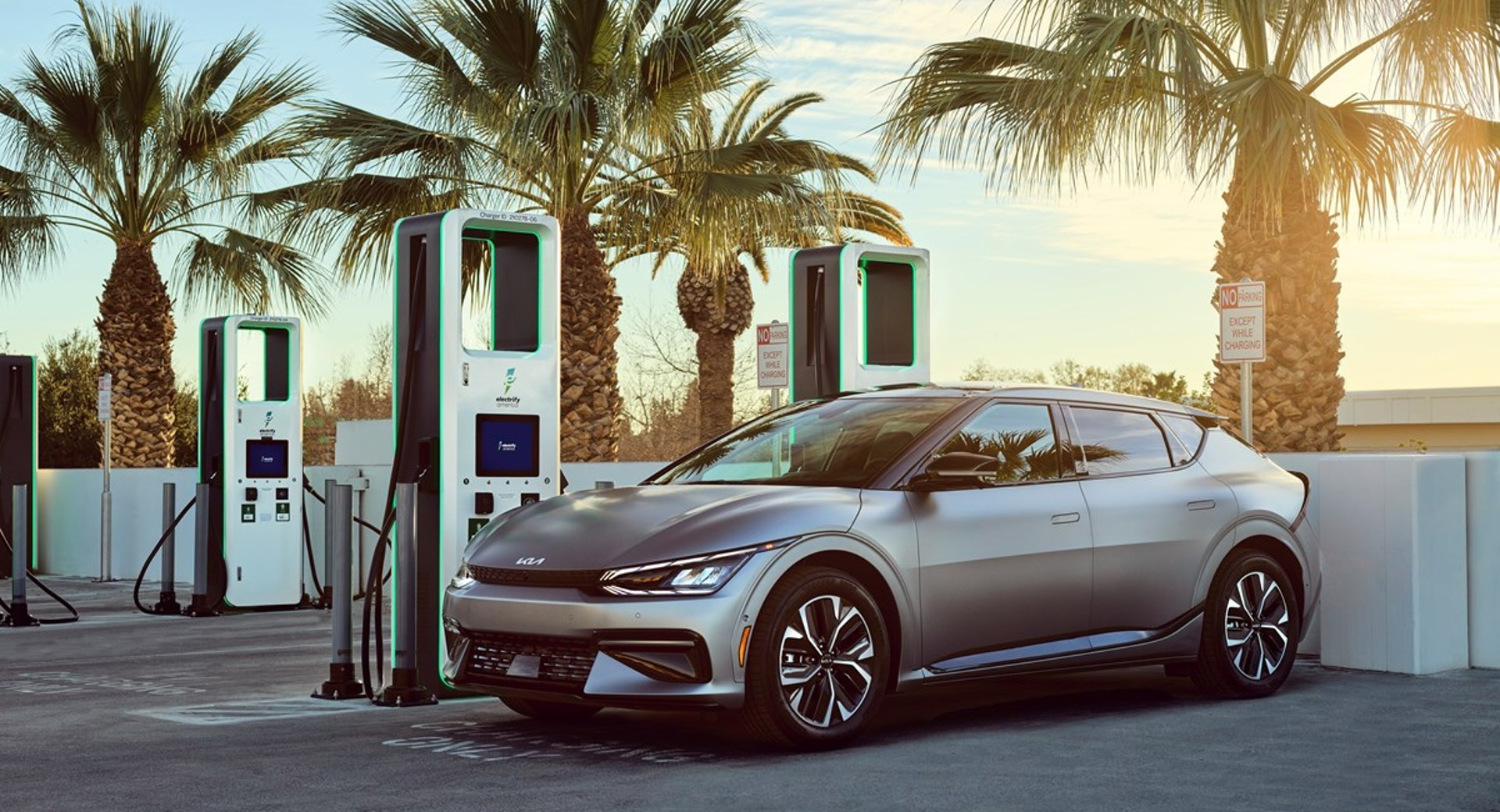New cars are in short supply while demand is far from cooling off. Prices and dealer markups have been driven up and now gas prices are on their way into the sky as well. While there’s no getting around the inflation or price bumps that new and even used cars are experiencing, there might be one way to save some money in the long term. That solution might be to buy an all-electric vehicle. That’s the source of our question of the day, will high oil prices drive you to an EV?
No plan is foolproof and the long-term repair costs of an EV, especially a used one, might be just as high if not higher than that of a conventional automobile. Despite that, many manufacturers are making the transition to electric vehicles easier for new-car buyers. Along with tax incentives, automakers are cutting buyers a break at the charging station.
Kia offers EV6 buyers thousands of free miles on the Electrify America charging network. BMW has offered its new-car buyers two full years of free charging on the same network. Volvo Polestar 2 buyers get the same deal too and that’s not even considering how much money can be saved in terms of electricity over gasoline.
Related: Gas Prices Soar 45 Cents In A Week To $4.06 Per Gallon, How Much Are You Paying?
Depending on location and charging infrastructure both in a residential and commercial setting, electric cars can be much cheaper to drive each day. At the same time, some studies have found the opposite to be true when factoring in things like taxes and ‘deadhead miles’ where EV owners are having to go further just to find fast-charging stations.
Short and long-term maintenance costs aren’t inconsequential either. While electric cars don’t require things like fluid changes, battery replacement costs can be prohibitively expensive when they become required. So are we at a point in time where you’d be willing to ditch gasoline once and for all in the hopes that electricity saves you some cash?
Do any of the aforementioned factors matter considerably more to you than others? Those in apartments don’t often have the freedom to install residential chargers so perhaps that’s a bigger factor too. Let us know your thoughts in the comments below!






